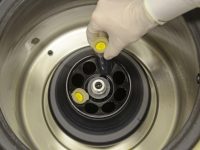Used oil testing services offer one of the most effective ways to monitor equipment health without unscheduled downtime. By analyzing oil samples taken directly from operating machinery, companies gain early insight into wear, contamination, and lubricant condition. What Used Oil Testing Reveals As oil circulates through engines, gearboxes, and hydraulic systems, it carries microscopic evidence…
Read more






